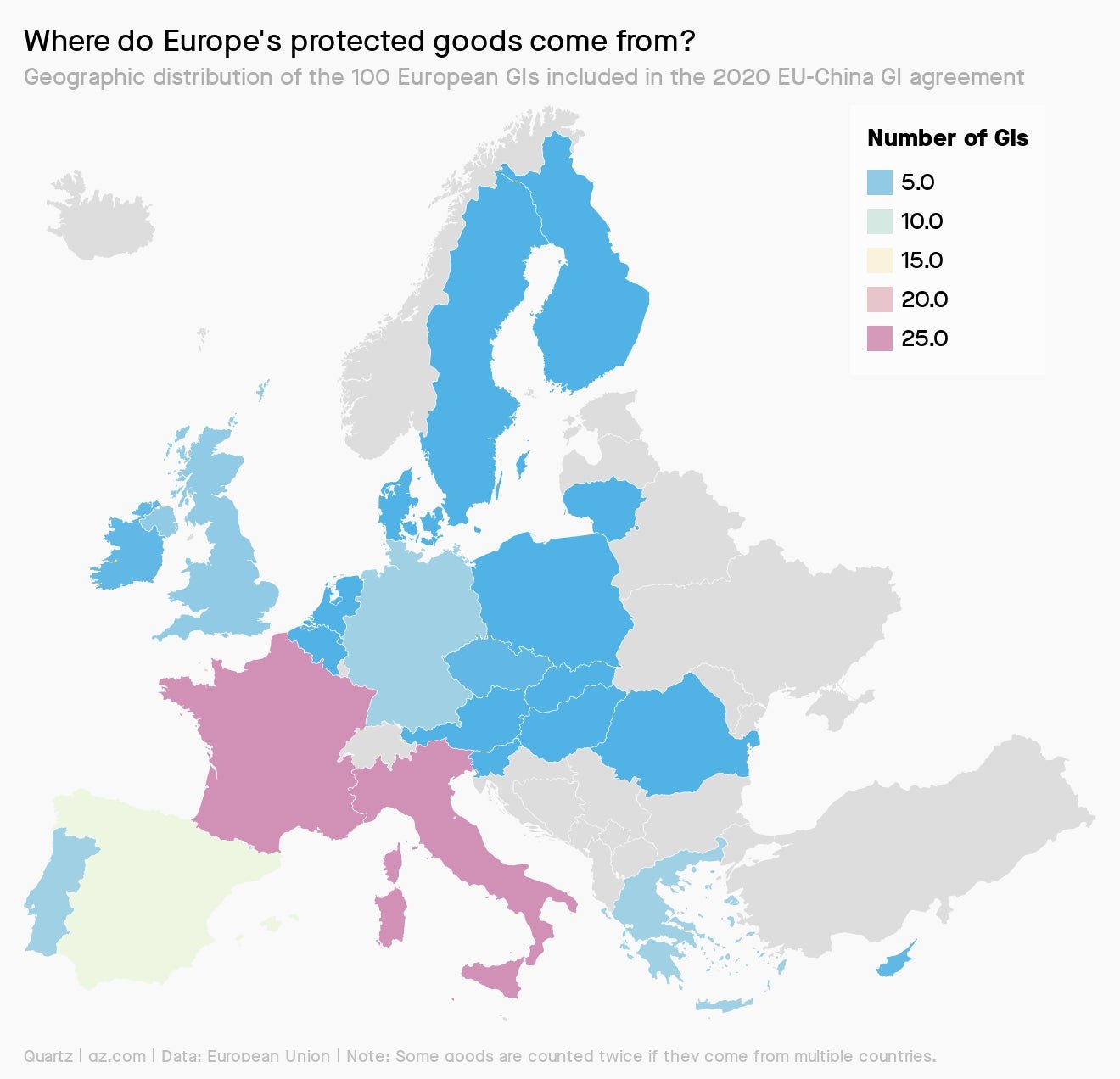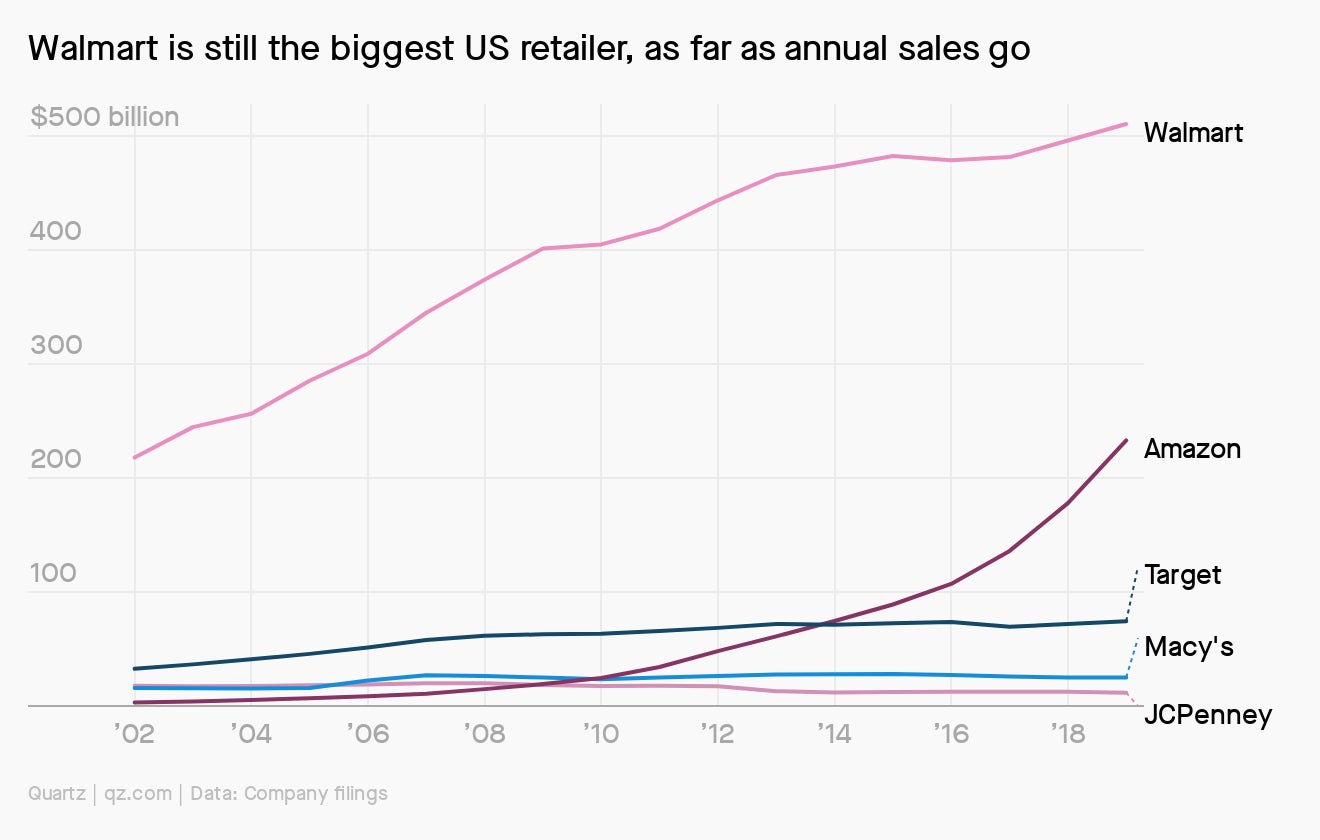TikTok ban day, Apple Watch day, requests for dying days
Good morning, Quartz readers!

Good morning, Quartz readers!
Here’s what you need to know
Oracle beat Microsoft’s TikTok bid. But the deal is not an outright sale—Oracle will instead be a “trusted technology partner”—and the US government has yet to signal its approval ahead of today’s deadline. And even with Microsoft out of the running, Walmart still wants in. Meanwhile, TikTok hit 100 million users in Europe, and YouTube launched a TikTok competitor in India, where the Chinese app was recently banned.
The US will block some imports from Xinjiang… The Trump administration announced bans on cotton, apparel, and other products from five specific entities suspected of using forced labor from Uyghur Muslims. Separately, the US State Department eased its stance toward US travel to China (but still recommends against it).
…but the outlook is rosy for an EU-China investment deal. Following Monday’s summit between EU leaders and Chinese president Xi Jinping, German chancellor Angela Merkel said both sides are ready to move forward. However, China’s alleged human rights abuses and import barriers remain as sticking points.
Apple showing off its latest tech. The company’s virtual “Time Flies” event could reveal an updated Apple Watch and the next iPad, but probably not the new iPhone. Meanwhile, Google promised there’ll be a new Pixel phone, smart speaker, and Chomecast at a Sept. 30 event.
India said China is installing fiber optic cables at the border. The claims by Indian officials suggest Chinese troops are preparing for a long-term standoff in the disputed Himalayan region.
Alexa is getting a new voice in India. Amazon has recruited Bollywood star Amitabh Bachchan to voice its digital assistant.
Mapping European protected goods
The French care a lot about their champagne. But don’t let them hear you call any old sparkling wine by that name—the real champagne only comes from the Champagne region of France, where producers pioneered a unique technique in the late 1600s.
All this is to say that names and geography matter. Governments often seek to protect regionally identifiable products through geographical indications (GIs), which identify products from a specific place as possessing “qualities or a reputation” that stem from that location.
That’s why an agreement signed on Monday between the European Union and China to mutually recognize 200 GIs (pdf) is important.
Half of the products on the EU’s list come from just two member states: France and Italy.

THE TV AD OF THE FUTURE
The TV ad is at risk of irrelevance. TV is struggling to compete with streaming services and traditional TV advertising lacks the analytics of digital alternatives. But they still provide a way for advertisers to reach a mass audience. Here’s what the TV ad of the future might look like:
Future #1: More relevance
Imagine you and your next-door neighbor are watching the same show at the same time, but you see an ad from Apple, and your neighbor gets an ad for Samsung. Creepy, perhaps, but more relevant—and coming soon.
Future #2: Fewer ads
In an effort to cram more brands in, 70% of US national TV ads are just 15 seconds. But lately, the trend is reversing. In 2018, NBCUniversal introduced “Prime Pods,” a 60-second advertising unit for NBC’s primetime shows.
Future #3: Less annoyance
NBCUniversal, Disney, and WarnerMedia are experimenting with a format called the “pause ad.” It’s simple: When you pause a video, a sponsored overlay appears on screen. Formats like this, along with product placement, will play a bigger role relative to commercial breaks.
Now it’s our turn for an ad: Read more about the future of advertising in our guide to the TV ad of the future. Not a member? Get full access to Quartz and all our field guides today.
Build a sustainable productivity routine

Struggling with productivity? You’re not alone. New challenges present new opportunities to rethink our time management strategies and put a more efficient routine into action—one built around the realities of working from home. Register to join us on Sept. 17 from 11am-12pm ET for our free workshop on how to build a sustainable productivity routine.
Obsession interlude: How we spend
A race to the top. For decades, Walmart was the 800-pound gorilla of US retail. The discount giant was envied by rivals, feared by small-town merchants, and blamed for the impoverishment of its workers and destruction of Main Street.
In the last decade, however, Walmart has had to face a challenger: Amazon. Jeff Bezos’s e-commerce giant is now the go-to retailer for millions of Americans, and upper-middle class America’s grocery store following its Whole Foods acquisition. Walmart, in turn, beefed up its e-commerce operations by buying (and closing) Jet.com on its way to developing a new subscription service, Walmart Plus.
As the two lock horns and face off for retail supremacy, the question for the next decade is: Can Walmart become Amazon before Amazon becomes Walmart?

You asked about see-through masks
When I am teaching children in my preschool class and we are all wearing our masks all day, can we hope that better mask technology is being developed that allows them to see our lips so they will learn proper letter sounds and diction?
We’ve been thinking and writing about the need for greater availability of see-through masks for a while now. Not only can most face masks lead to pedagogical obstacles like you describe, but they can exclude the deaf and hard of hearing community as well (ditto for Zoom meetings).
Safe’N’Clear offers surgical masks with a see-through window panel that shows the wearer’s mouth. However, its product is currently sold out. There are also YouTube videos to teach people how to create their own DIY masks with clear windows. For more information on see-through masks, check out accessiblemasks.org, an online resource for transparent face coverings developed by a former Quartz employee and his brother.
Surprising discoveries
Forget Martians, make way for Venusians. Astronomers say newly-discovered toxic gas on Venus could have been made by microbial life forms.
US Customs said OnePlus Buds violate Apple’s AirPods trademark. The agency doubled down after it was mocked for seizing a shipment from Hong Kong.
East Java has a novel punishment if you refuse to wear a mask. One district made violators of Covid-19 safety measures dig graves.
Call it a sentence post-death. Hire the “coffin confessor” to crash your funeral.
Taco Bell is making its own wine. Jalapeño Noir is designed to pair with its Toasted Cheesy Chalupa.
Correction: In yesterday’s Daily Brief, we referred to James Bullard as the US Fed president. He is the president of the St. Louis Federal Reserve. We regret the error.
Our best wishes for a productive day. Please send any news, comments, AirPod alternatives, and some wine that pairs with queso to [email protected]. Get the most out of Quartz by downloading our app on iOS or Android and becoming a member. Today’s Daily Brief was brought to you by Annabelle Timsit, Walter Frick, Oliver Staley, Liz Webber, and Max Lockie.